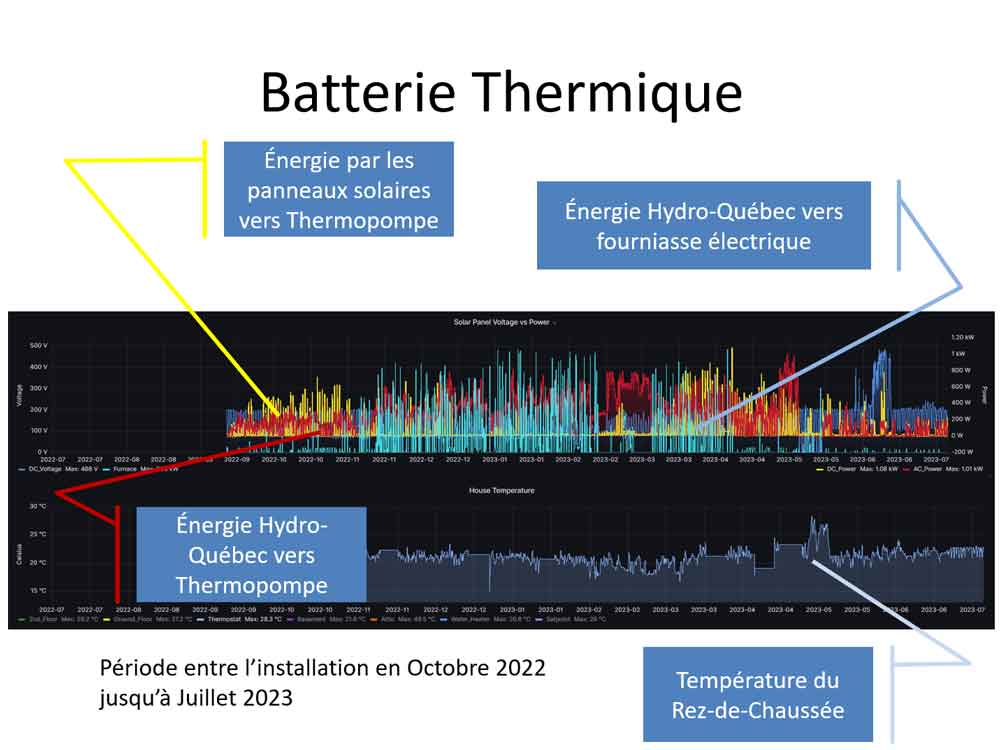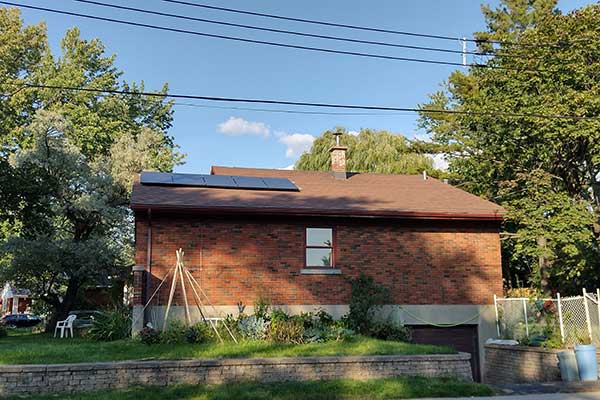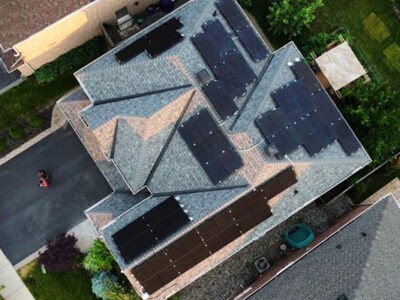My recent article about a Montreal resident’s extreme DIY design of an innovative, battery-free hybrid solar panel system and how it powers his AC during hot summer days sparked intriguing discussions among our readers.
Your feedback led me to delve deeper into Trung Nguyen’s unique design.
Overview of the Original System
Montreal resident Trung Nguyen developed a groundbreaking hybrid solar system that powers air conditioners, fans, and heat pumps without needing batteries.
This innovation offers significant energy savings, making homes comfortable and cost-efficient.
Impressed by Nguyen’s success, the Saint-Laurent borough hall adopted an upscaled version of his system, emphasizing the region’s potential for renewable energy adoption.
What Makes It Unique: Simplicity and Cost-Effectiveness

AC unit attached to the side of Trung Nguyen’s Montreal home. (image provided to pvbuzz by Trung Nguyen)
According to Nguyen, the system is designed to be easy to install and maintain. Unlike commercial systems, it has no batteries, inverter, battery charger, and minimal electrical cables, thus reducing the overall cost.
“It looks like a regular air conditioning unit and operates using a remote that is identical to any air conditioner.
No batteries and associated electronics to install and maintain,” Nguyen says.
What Makes It Unique: Environmental Impact
Nguyen’s system helps reduce household electricity consumption by using solar energy during the day and switching to the grid at sunset.
“The system uses solar energy during daytime when air conditioning is in high demand then switches to the electrical grid automatically at sunsets,” Nguyen elaborates.
What Makes It Unique: Independence from Utility Providers
What makes Nguyen’s design stand out is its independence from Hydro-Quebec, the main electricity supplier in the region. This autonomy avoids potential regulatory or bureaucratic hurdles.

Screenshot of some important data. It shows solar panel production since installation. (image provided to pvbuzz by Trung Nguyen)
Responses and Criticisms
Some readers questioned the system’s innovativeness and savings of $100.00 monthly.
Yet others noted that a DIY system like Nguyen’s might not be feasible everywhere in Canada due to local regulations.
Inspiration and Government’s Role
Nguyen’s motivation as a semi-retired electrical engineer was to reduce his carbon footprint.
He was dissatisfied with commercial systems and saw an opportunity to innovate.
“Hydro-Quebec has announced that by 2026-2027 they will no longer have a surplus of energy… The Government could provide a tax break for homeowners who install solar systems to make it more accessible,” Nguyen suggests.
Potential Impact and Long-term Thinking
While Nguyen’s system may seem like a small individual step, it has far-reaching potential.
Showcasing renewable energy solutions can inspire other homeowners to follow suit. Nguyen also emphasizes long-term environmental benefits over short-term financial returns.
Nguyen’s solar system design exemplifies how individuals can actively contribute to a cleaner and more sustainable future.
His approach underscores that environmental preservation isn’t just the task of governments and corporations but is a collective responsibility where every homeowner has a part to play.
His innovative, cost-effective, eco-friendly solution makes it newsworthy and inspiring for a greener tomorrow.












Comments